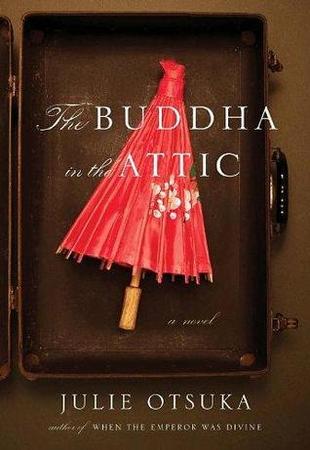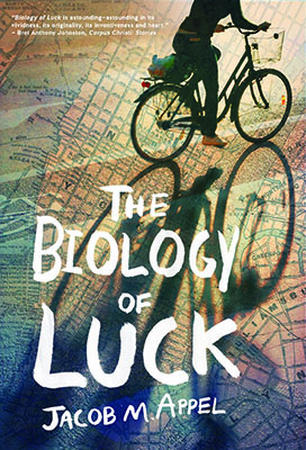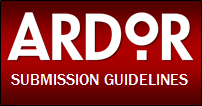Reviewed by Cori Di Biase

Voice is the breath and the blood of narrative. It is what makes a story human and living. In Jesmyn Ward’s Salvage the Bones, the days leading up to Hurricane Katrina are rendered with a rare and insistent voice that rings clear, even in the howling wind.
Salvage the Bones is told in the voice of Esch, the lone girl in a family of three brothers and her father. Though quiet with others, the rich internal life Esch offers to the reader is layered with myth, uncertainty and the practicality required of her circumstances. We feel her sickness and her sweat and the racing of her heart and mind as she learns that, at fifteen, she is pregnant. We feel her fear and her confusion when, upon seeing the results of a home pregnancy test, she tells us:
Salvage the Bones is told in the voice of Esch, the lone girl in a family of three brothers and her father. Though quiet with others, the rich internal life Esch offers to the reader is layered with myth, uncertainty and the practicality required of her circumstances. We feel her sickness and her sweat and the racing of her heart and mind as she learns that, at fifteen, she is pregnant. We feel her fear and her confusion when, upon seeing the results of a home pregnancy test, she tells us:
“Two lines means that you are pregnant. You are pregnant. I am pregnant. I sit up and curl over my knees, rub my eyes against my kneecaps. The terrible truth of what I am flares like a dry fall fire in my stomach, eating all the fallen pine needles. There is something there.”
As she describes Skeetah, the brother to whom she is closest in age and experience, Esch’s affection and admiration are as basic and clear as the ink on the page:
“Skeetah puts his hand on China’s neck, as careful as Mama used to take biscuits from the oven… (his) bald head looks muddy from sleeping on the dirty floor of the shed. Mama’s arms would look like that when she was pulling greens in the small garden plot she kept behind the house.”
 Jesmyn Ward, author of Salvage The Bones
Jesmyn Ward, author of Salvage The Bones Skeetah keeps a fighting pit-bull named China, who is the new mother of a weak litter which quickly begins to die off. While hiding her pregnancy from him, Esch helps Skeetah try to save the pups. Randall and Junior, Esch’s oldest and youngest brothers, are more distant, but no less alive, and no less real. In any other novel, just one of their stories would spill over the sides of the page.
Salvage the Bones is set in the days before Hurricane Katrina on the Gulf Coast of Mississippi in the poor, largely black, rural town of Bois Sauvage. There is a tendency in ‘disaster fiction’ to give the bulk of the narrative over to foreshadowing: to point every action toward the event; to render a setting only that it might be struck down; to cast every character as either a villain or a victim. Salvage the Bones does not want for foreshadowing, to be sure. Esch’s father, though otherwise absent from the role of care-taker and protector, occupies himself throughout the book with preparations for the coming storm, enlisting whichever of his children he happens to lay eyes on to the same cause. He speaks only to warn of the storm that’s coming, and he acts only in fear of it. But in this activity he seems more irrelevant than revealing. His monomaniacal puttering pales against the more pressing concerns of the other characters. The reader becomes so entangled in the lives of Esch and her brothers that we regard her father and his ongoing warnings as distractions. We roll our eyes, like they do … even though we ought to know better.
Salvage the Bones is set in the days before Hurricane Katrina on the Gulf Coast of Mississippi in the poor, largely black, rural town of Bois Sauvage. There is a tendency in ‘disaster fiction’ to give the bulk of the narrative over to foreshadowing: to point every action toward the event; to render a setting only that it might be struck down; to cast every character as either a villain or a victim. Salvage the Bones does not want for foreshadowing, to be sure. Esch’s father, though otherwise absent from the role of care-taker and protector, occupies himself throughout the book with preparations for the coming storm, enlisting whichever of his children he happens to lay eyes on to the same cause. He speaks only to warn of the storm that’s coming, and he acts only in fear of it. But in this activity he seems more irrelevant than revealing. His monomaniacal puttering pales against the more pressing concerns of the other characters. The reader becomes so entangled in the lives of Esch and her brothers that we regard her father and his ongoing warnings as distractions. We roll our eyes, like they do … even though we ought to know better.
Jesmyn Ward’s copious foreshadowing has little impact on the reader. Hers is not a world built to be ravaged by a hurricane. Her characters are too full to be set-pieces, victims in waiting. Her story is too good, too compelling and too complex to be resolved by a simple tragedy. The richness of the characters Ward offers makes the storm feel like a petty, mechanistic resolution for lives that are too real and too problematic to submit to easy completion. The storm is a narrative affront. An interruption.
Perhaps this sounds like criticism, but it is exactly the opposite.
The problem with typical foreshadowing is that it positions tragedy, even tragedy on the scale of Katrina, as a natural, and therefore acceptable, consequence of the events that preceded it. Narrative structure makes disaster seem right, or at least intended. The most significant accomplishment of Salvage the Bones is the extent to which it makes the storm, before it hits, seem insignificant. The reader is tricked into an almost impossible belief: that Katrina cannot be real, cannot be coming, cannot be what we know it was. Amidst the reality, the pain, the vividness and the chaos of Ward’s wholly living characters, Katrina seems unimaginable; as inconceivable as it did before it was real.
For a writer of less talent and honesty, Katrina might have become a kind of narrative resolution; a natural ending with a ready-made tragic purpose. Instead, the storm hits and the world of Salvage the Bones shifts jaggedly and unnaturally. The storm seems wrong as it is happening. It brings no resolution, practical or poetic. It washes away homes and lives and hopes, but leaves each character’s problems untouched and unresolved. Landscapes disappear, but the dire conflicts and concerns readers are invested in remain. Ms. Ward achieves a rare feat in literature: the Katrina she writes does not become a narrative device. It is a narrative offense. It is as it should be: terrifying and unimaginable; interruptive and absurd. It is not contained within the story, but made horribly, lastingly alive by it. It is not trite, it is not easy, and it solves nothing. The book ends, as it must. Ward’s characters and story persist, as they should.
Perhaps this sounds like criticism, but it is exactly the opposite.
The problem with typical foreshadowing is that it positions tragedy, even tragedy on the scale of Katrina, as a natural, and therefore acceptable, consequence of the events that preceded it. Narrative structure makes disaster seem right, or at least intended. The most significant accomplishment of Salvage the Bones is the extent to which it makes the storm, before it hits, seem insignificant. The reader is tricked into an almost impossible belief: that Katrina cannot be real, cannot be coming, cannot be what we know it was. Amidst the reality, the pain, the vividness and the chaos of Ward’s wholly living characters, Katrina seems unimaginable; as inconceivable as it did before it was real.
For a writer of less talent and honesty, Katrina might have become a kind of narrative resolution; a natural ending with a ready-made tragic purpose. Instead, the storm hits and the world of Salvage the Bones shifts jaggedly and unnaturally. The storm seems wrong as it is happening. It brings no resolution, practical or poetic. It washes away homes and lives and hopes, but leaves each character’s problems untouched and unresolved. Landscapes disappear, but the dire conflicts and concerns readers are invested in remain. Ms. Ward achieves a rare feat in literature: the Katrina she writes does not become a narrative device. It is a narrative offense. It is as it should be: terrifying and unimaginable; interruptive and absurd. It is not contained within the story, but made horribly, lastingly alive by it. It is not trite, it is not easy, and it solves nothing. The book ends, as it must. Ward’s characters and story persist, as they should.

Cori Di Biase is a graduate of Bard College at Simon’s Rock and Purchase College. Born in New Jersey and raised in Allegany County, New York, he now lives in Montana with his wife and stepdaughter. Mr. Di Biase is the author of a variety of works of fiction and non-fiction. Excerpts from his debut novel These Can't Be Choices and other work can be found at www.apparentsublime.com.
You can also connect with Cori on Twitter & Facebook.
You can also connect with Cori on Twitter & Facebook.


 RSS Feed
RSS Feed

